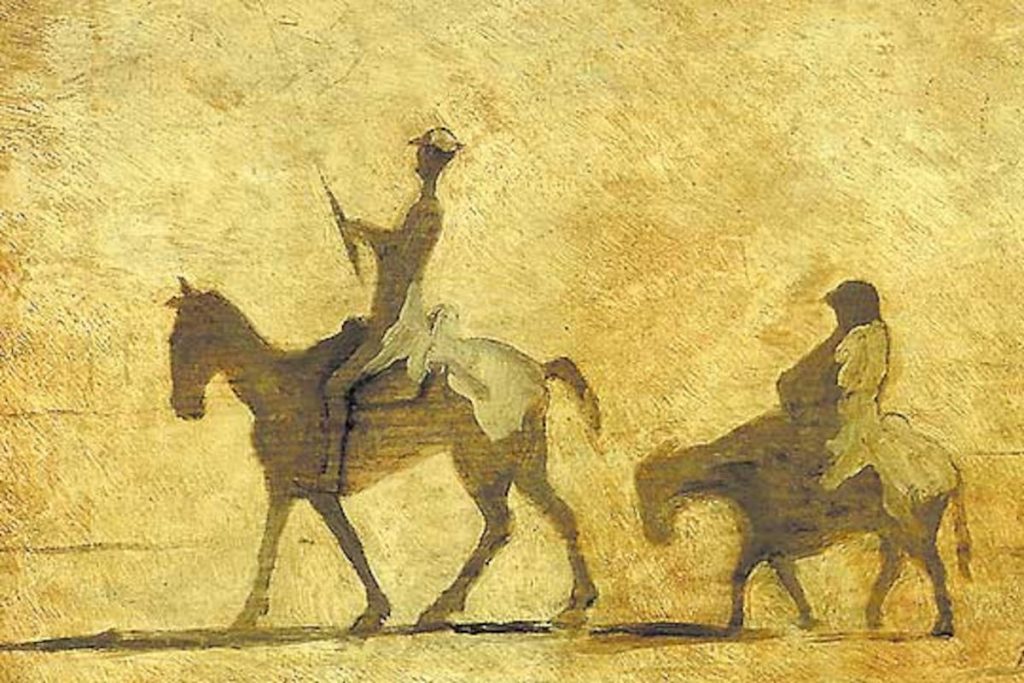In this content, Don Quijote escapes from the pages of his books and enters the real world to talk about his thoughts, which are still relevant to us. It refers to a time when people lived without the concepts of “mine” and “yours,” which is depicted as a golden age. The discourse that Don Quijote had with the goatherds becomes famous, highlighting the idea of overcoming individualistic notions in favor of a common good. The content also mentions a poem by Gil de Biedma, describing the Franco-era Spain as a stubborn nation of goatherds, emphasizing the need to move away from selfish perspectives.
The idea of overcoming the “mine” and “yours” mentality is not about negating individual consciousness but about working towards a common good that benefits everyone. It stresses the importance of a collective consciousness that values diversity while avoiding conflicts that arise from selfish and individualistic views. The content suggests that political debates and discussions should aim for a golden age where different perspectives can be considered for the greater good, which would facilitate a more harmonious society.
The content advocates for a more quixotic approach to political discourse, where discussions on issues such as Catalonia, Spain, and Europe can embrace diverse viewpoints for the common good. It warns against the dangers of rigid and confrontational attitudes that arise when individuals prioritize their own interests over collective well-being. It calls for a more peaceful and non-partisan commitment to coexistence, urging for a united front against divisive and sensationalist politics that alienate people.
While the content acknowledges that achieving complete unity might be unrealistic, it emphasizes the importance of finding common ground and embracing diversity in opinions for the betterment of society. It suggests that a shared commitment to coexistence and mutual understanding can help quell conflicts and foster a sense of community. It highlights the need for a calm and rational approach to political discussions, contrasting it with the divisive and confrontational tactics employed by some individuals and groups in society.
In conclusion, the content draws parallels between the timeless wisdom of Don Quijote and the modern-day challenges faced by society in terms of political discourse and social harmony. It advocates for a more inclusive and collective approach to addressing societal issues, emphasizing the importance of valuing diversity and working towards a common good. It cautions against the pitfalls of selfish and divisive attitudes, urging individuals to prioritize cooperation and mutual respect for a more peaceful and harmonious coexistence.Ultimately, it encourages readers to embrace a more quixotic mindset in their interactions with others, envisioning a society where different perspectives are respected and valued for the greater good.


